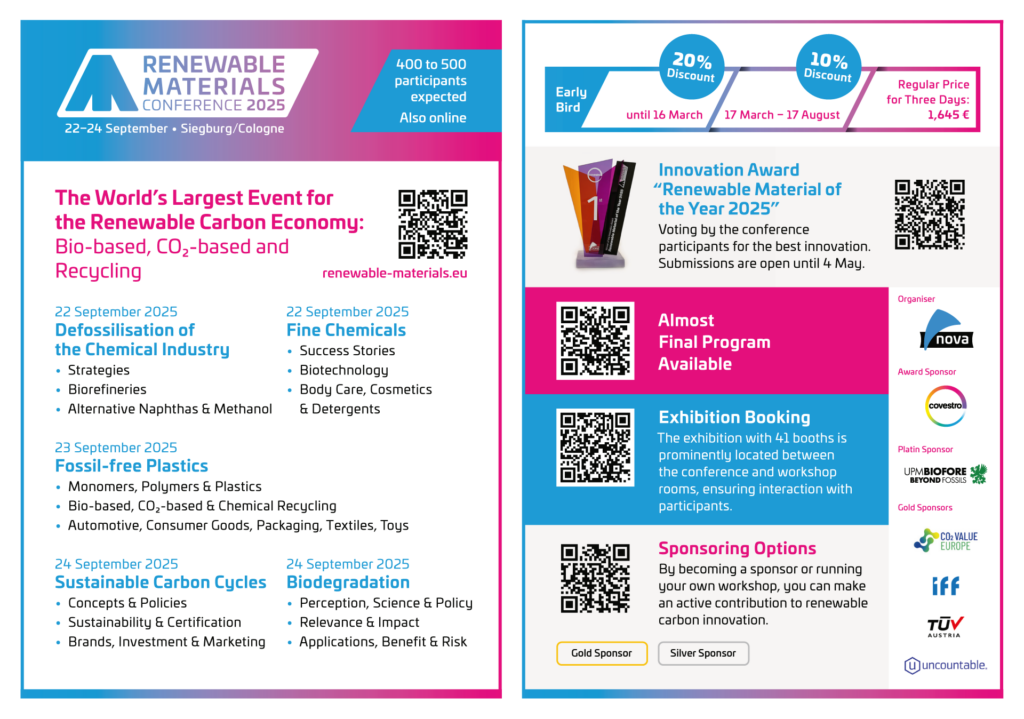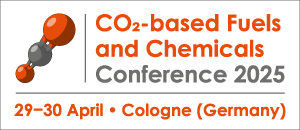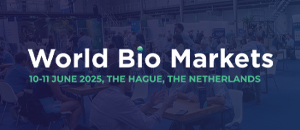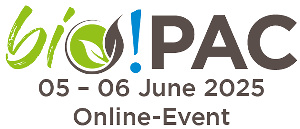
The Renewable Materials Conference (RMC), 22-24 September 2025 in Siegburg/Cologne (Germany), is the world’s largest conference on innovative and renewable chemicals, plastics and materials. It presents solutions and innovations for replacing fossil carbon with biomass, CO2 utilisation and advanced recycling – the only alternatives to fossil-based materials.
Call for Innovation
The deadline for submitting your innovation for the “Renewable Material of the Year 2025” innovation award is 4 May renewable-materials.eu/award-application/
Please find the preliminary program here (pre-selected top speakers): renewable-materials.eu/program/
Would you like to become a sponsor of the conference? Become exhibitor, perform a workshop? Or advertise in the conference journal?
All information here: renewable-materials.eu/sponsoring/
The unique concept of showcasing all renewable materials solutions in one event hits the mark. It covers the entire value chain from alternative carbon feedstocks, the chemical industry, the materials sector, product manufacturers to brand owners, as well as investors and policy makers. Nearly 500 participants from 32 countries attended the last conference in June 2024, 90% of them from industry. And this year we expect more than 500 participants, 80 presentations, 10 panel discussions and 12 workshops.
Five topics of the conference
Defossilisation of the Chemical Industry
This topic is the next big thing in climate change mitigation. More than 90% of the carbon embedded in chemicals and plastics is fossil carbon from the ground, which needs to be replaced by biogenic, captured and recycled carbon. Chemical companies, start-ups and industry associations are invited to present their concepts, strategies and success stories for the future of a sustainable and competitive chemicals and plastics industry. Topics include alternative feedstocks, alternative naphtha, electric cracker and non-cracker commodity production via methanol and ethanol, biotechnology and biorefineries and more.
Fine Chemicals
The global fine chemicals market, valued at US$ 180 billion, is experiencing a surge in demand for bio-based solutions. Since fine chemicals are high-value and specialised ingredients for essential products such as pharmaceuticals, cosmetics, personal care products, food additives, and so on, their demand remains independent of economic cycles. Advances in biotechnology and biocatalysis are driving the development of high-purity compounds and sustainable processes. Overcoming challenges such as scalability and cost effectiveness is expected to unlock the market potential in this transition. Fine chemicals companies are invited to showcase their achievements and cutting-edge developments.
Fossil-free Plastics
Modern life is unthinkable without plastics, yet 95% of all plastics today are derived from fossil carbon from the ground – globally 4% are derived from recycling and 1% from biomass. There is a growing demand for fossil-free plastics in several product groups. Start-ups and established companies are invited to present their polymer and plastic innovations based on biomass, captured CO2 and recycling. These include packaging, consumer products, automotive, textiles and high-performance applications. The conference offers a unique opportunity to showcase alternatives to fossil plastics to brand owners and benefit from cross-sectoral discussions and networking.
Sustainable Carbon Cycles
The main objective of the Green Deal is the transition to a circular economy away from a linear production model characterised by the consumption of huge amounts of raw materials and the generation of an equal amount of waste. The concept of sustainable carbon cycles was introduced by the European Commission in 2022 and is becoming increasingly influential for future regulations and legislation. Brands, investors, policy makers and certification bodies are invited to present their visions and discuss strategies and policies for sustainable carbon cycles, circular raw materials, cascading use and zero-waste production at panel discussions and workshops.
Biodegradation
Biodegradable plastics are a complex and controversial issue. The key question is no longer whether biodegradable plastics are a good solution, but in which applications biodegradability makes sense. This is already reflected in the new Packaging and Packaging Waste Regulation (PPWR), which will make biodegradability mandatory for the first applications. Start-ups, companies and scientists are invited to provide in-depth information on perception, science and policy, relevance and impact, applications, benefits and risks.
Source
nova-Institute, original text, 2025-02-26.
Supplier
Share
Renewable Carbon News – Daily Newsletter
Subscribe to our daily email newsletter – the world's leading newsletter on renewable materials and chemicals














